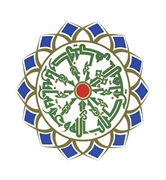- Moral Governance of Prophet Muhammad (s), Part II
The Prophet Muhammad was sent to refine people’s character as well as establish a community based on moral principles. In the power structure he formed, he encouraged public participation, eradicated idol worship in Mecca, and instead constructed places of worship for Muslims. The Prophet also created a comprehensive system of fundamental laws in which the duties of each person was considered to form an independent and unified nation. According to these guidelines, the Prophet succeeded in creating a system grounded on perfect principles in which all believers have equal rights rather than abiding by rules based on tribe, gender, race, or social class. In this part, Prophet Muhammad’s ethical management of the economy in the Islamic state will be studied. The Prophet sought various ways of solving the economic difficulties of the Muslims by maintaining fair distribution of property and wealth through sources of income for Muslims such as zakat (legal charity), spoils of war, khums (the Islamic tax), and tribute.

Message of Thaqlayan
Most Read Papers
- Index of Previous Titles, Spring 2009 - Winter 2004
- About
- Authors
- Titles
- Subject
- Editor-in-Chief
- The Connection between Imam Mahdi and Imam Husayn, Part III
- Allamah Hilli on Imamate in Kashf al-Murad, Part II
- The Qur'an in the Words of Imam Sajjad
- Healthy Personality in the Youth: An Islamic Perspective
Recent Issues
- Volume 18, Number 3 (2017)
- Volume 18, Number 3 (2017) table of content
- Volume 18, Number 2 (2017) table of content
- Volume 18, Number 2 (2017)
- Volume 18, Number 1 (2017)
- Volume 18, Number 1 (2017) table
- Volume 17, Number 4 (2017) table
Copyright © 2022. All rights reserved by Zain Abbas Shahid
Shopping Basket

Message of Thaqlayn
Menu

